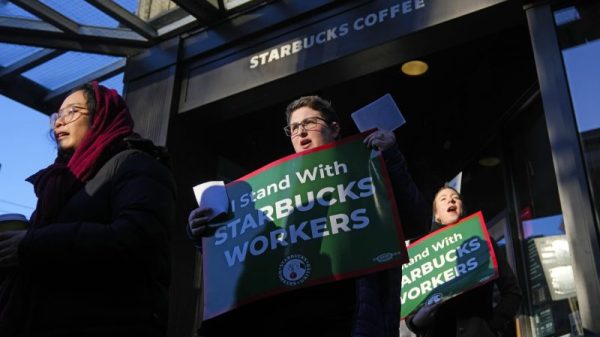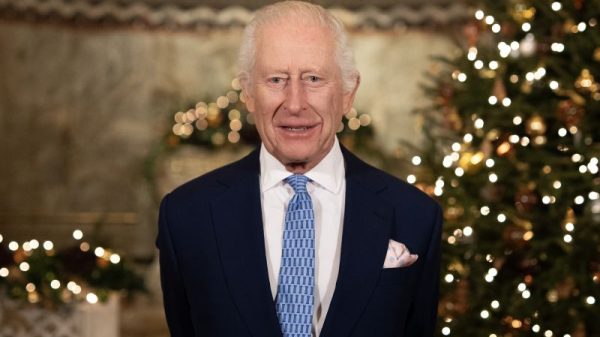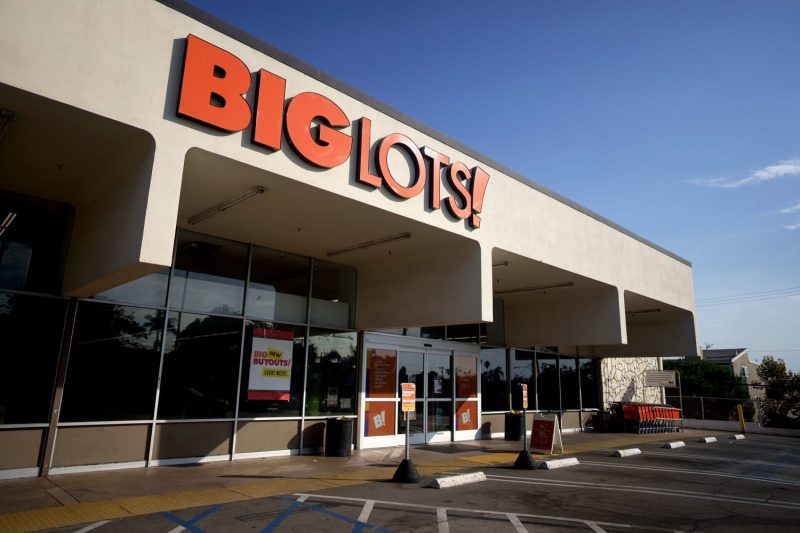Discount home goods retailer Big Lots filed for bankruptcy protection on Monday after high interest rates and a sluggish housing market slowed demand for its low-priced furniture and decor.
As part of its Chapter 11 filing, Big Lots agreed to sell its business to private equity firm Nexus Capital Management for about $760 million, consisting of $2.5 million in cash plus its remaining debt and liabilities, court records show.
The company, which runs more than 1,300 stores across 48 states, is one of the country’s largest closeout retailers and specializes in offering bargain-basement pricing on all things home. It brought in about $4.7 billion in revenue in fiscal 2023, but sales have consistently fallen after pandemic-era demand for home furnishings dropped.
In a press release and court filings, Big Lots said it will operate its business normally but has started the process of closing nearly 300 stores so it can fix its balance sheet and reduce costs.
“The actions we are taking today will enable us to move forward with new owners who believe in our business and provide financial stability, while we optimize our operational footprint, accelerate improvement in our performance, and deliver on our promise to be the leader in extreme value,” CEO Bruce Thorn said in a news release. “As we move through this process, we remain committed to offering extreme bargains, enabling easy shopping in our stores and online, and providing an outstanding customer experience.”
Evan Glucoft, managing director at Nexus, said the firm is “confident” that Big Lots’ “greatest days are ahead.”
“We are excited to have the opportunity to partner with Big Lots and help return this iconic brand to its status as America’s leading extreme value retailer,” said Glucoft.
Big Lots has been teetering near the edge for months after high interest rates and a sluggish housing market slowed consumer demand for new furniture, decor and other home supplies. While discount retailers tend to do well in rough economic cycles, Big Lots primarily caters to lower- and middle-income consumers, who have curbed discretionary spending at a higher rate than their more affluent counterparts.
“The company has been adversely affected by recent macroeconomic factors such as high inflation and interest rates that are beyond its control,” Big Lots said in a news release. “The prevailing economic trends have been particularly challenging to Big Lots, as its core customers curbed their discretionary spending on the home and seasonal product categories that represent a significant portion of the company’s revenue.”
Beyond macroeconomic conditions, Big Lots also operates in a highly competitive space and has struggled to differentiate itself from other discounters that offer home goods or specialize in the category, such as Wayfair, Walmart and TJX Cos.′ Home Goods.
“Big Lots is not always good value for money. Many of the items it sells are not high end and are not drastically expensive, but equivalents can often be found much cheaper at other stores, including Walmart,” Neil Saunders, managing director of GlobalData, said in a note.
“The other issue [is] the assortment is very jumbled and muddled, which is partly a function of the way the business operates,” Saunders added. “However, there is far too much choice and not nearly enough treasure for consumers to be enticed by. This creates an unsatisfactory shopping experience, especially compared to other players operating in the discount space, such as off-price retailers.”
As part of the bankruptcy process, Big Lots will hold a court-supervised auction for its business. It could go to a different buyer if they make a bid that’s higher than Nexus’ offer.
It’s working with law firm Davis Polk & Wardwell, investment bank Guggenheim Securities and advisory firm AlixPartners. A&G Real Estate Partners has been tapped as Big Lots’ real estate advisor, while Nexus will be represented by law firm Kirkland & Ellis.







































